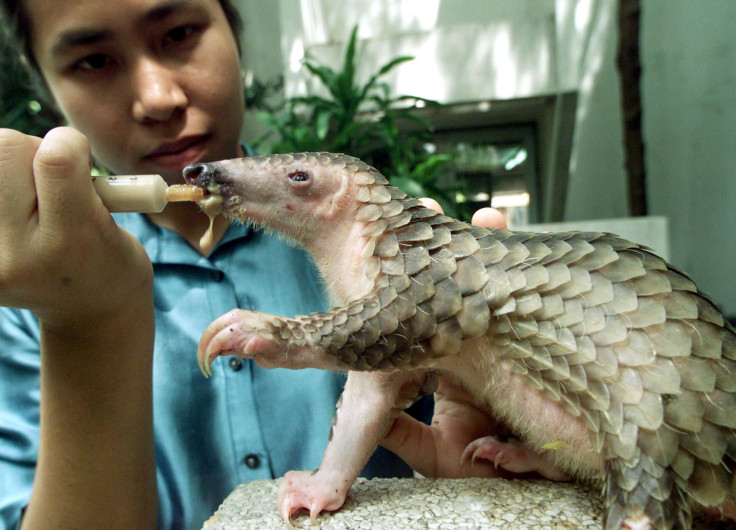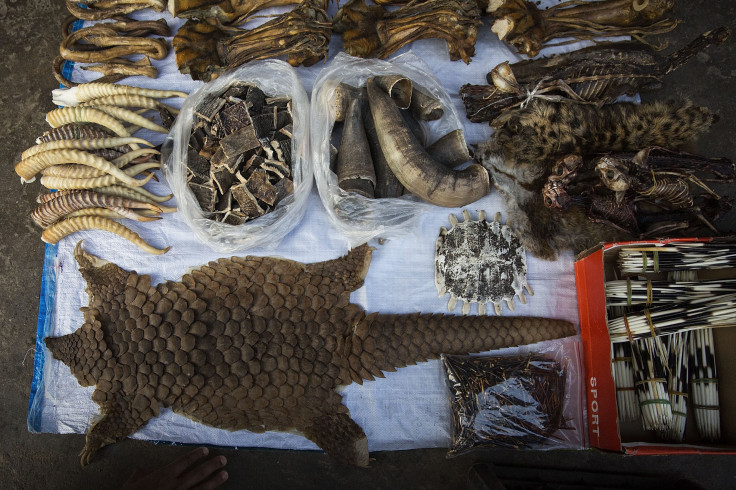What Is A Pangolin? Google Doodle's Valentine's Day Game Features Endangered Animal

The team of illustrators at Google took the opportunity to use Valentine's Day as a way to raise awareness for one of the world’s most endangered, and little known, creatures. The pangolin, a mammal covered in scales, was featured in Monday’s Google Doodle.
Also known as “scaly anteaters,” pangolins are the most trafficked mammal in the entire world. The creatures have been hunted for food and used in traditional medicine, while their scaly skins were coveted as fashion accessories. In traditional medicine, the scales get dried and roasted as treatment for nervousness and palsy. The rampant illegal trade combined with a rapid loss of habitat has led to the eight species of pangolin becoming critically endangered. Most of the illegal trade originated in Cameroon, Nigeria and Ghana.
Native to Asia and Africa, pangolins eat ants and termites using long, sticky tongues and are capable of rolling themselves into a ball when threatened. Though it was unclear how long they can live in the wild, pangolins have been known to live up to 20 years in captivity.

Google aimed to increase inadequate public and governmental awareness regarding the species with its Doodle Monday featuring a giant pangolin on a search for love.
Reported seizures of illegally hunted pangolins between 2011 and 2013 showed that as many as 234,000 pangolins were killed. But that number likely only represents 10 percent of the actual volume of pangolins being traded illegally, according to the World Wildlife Fund.
In 2016, the Convention on International Trade in Endangered Species upgraded pangolins to appendix one of endangered species in order to ensure they would be given the strictest protection possible. More than 180 governments came together to sign an agreement to end legal trade of pangolins and increase penalties on those found to have trafficked in the animal.
© Copyright IBTimes 2025. All rights reserved.






















